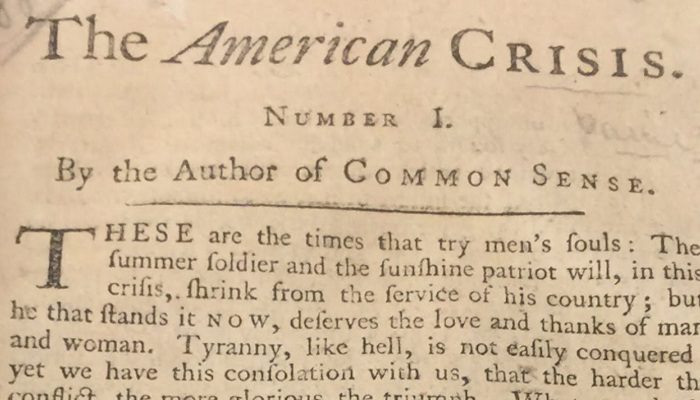
On the eve of a momentous and very divisive US elections, Europe and all the American allies and friends are awaiting the results with immense uncertainty. It is the first time since WWII that there has been a significant difference between the two candidates in foreign politics, and it’s unclear how this will be resolved. A vital difference will remain if Washington doesn’t reach a bipartisan consensus after the elections. If this gap is not addressed, it could pose a risk for the US and the world.
It’s wrong to believe there is a distinct European front separate from an Asian one. The arrival of North Korean troops fighting for Russia in Ukraine proves that, as at the onset of the first Cold War 75 years ago, the two sides of the Eurasian continent are interconnected.
In 1950, Russia supported North Koreans against US-backed South Korea and pushed China into North Korea. Now, Russia is using North Korea against US-backed Ukraine, forcing China to take a clearer position on Ukraine, much like Moscow pushed Beijing into intervention in Korea in 1951.
In the late 1940s and early 1950s, the US tried to stop the USSR by establishing NATO and urging more economic cooperation in Western Europe. Similarly, we are now seeing a strengthening of NATO against Russia, and parallelly bolstering the EU would have a similar effect against Russia. A stronger Europe would also help stabilize the Middle East. A more divided EU, where in each country there is a restive Muslim minority, could quickly become a new hotbed of Islamic radicalism.
The Middle East is a new complication compared to the onset of the Cold War in the early 1950s. Now, because of the regional and global role of Israel and the threat of Iran-sponsored Muslim terrorism, the area is strategically critical and closely connected with Russia and China; then, with Turkey and Iran firmly on the US side, it was less critical.
In many ways, it is all one confrontation, and it is likely that the war in Ukraine, with its bloodshed and Russia’s failures, preempted a similar move from China in East Asia. In the 1950s, the Korean War preempted a similar Soviet attack on Europe.
A way to pressure China to change its positions and help Japan and South Korea, staunch US allies, can be to push back Russia in Ukraine or compromise with Russia in return for Moscow flipping on China and Iran. Or, vice versa, find a solution with China that could put Russia and Iran on the spot.
Therefore, it would be delusional to view the confrontations with Russia, Iran, North Korea, or China as isolated from one another. Moreover, it’s challenging to think that the US could easily negotiate separately with each other. These countries remember China’s move with Nixon’s America and are very wary of being “betrayed” by any of their partners. They do not trust the US. They claim they have been cheated and betrayed by the US, and moving them back from this position is hard.
This is one more reason why the US must not lose the trust of its friends and allies and should treasure this trust. They should not feel that America will sell them out for short-term gains.
With that, it should be imperative to maintain active diplomacy with Russia, China, Iran, and North Korea to find opportunities for change and dialogue and not leave everything to an escalation of war and conflict.
These countries also profoundly mistrust one another and have concerns and fears. Their economies are not faring too well, and their people lose freedom daily. Domestic consensus isn’t growing, and some in the leadership of those countries may seek a way out of this corner. The US and its allies should work to regain space with them and help each one change its mind.
New structures
The US must build a new world order around its present structures and alliances. These took time to create, and dismantling them would be a total waste and a major setback. Such a move would jeopardize the US position in the world with both friends and adversaries for decades. Nobody would trust America—not the betrayed allies or new “friends.”
America needs patience and must work on building trust both with allies and adversaries. It must be seen as reliable and, on this basis, build a new dialogue, finding paths for de-escalation on each front while recognizing their interconnections. Friends and allies must be brought closer, as they have been and will be the primary instruments in building a new world order.
China’s position on the war in Ukraine, its indifference to the EU’s concerns about Russian aggression, and China’s hostility to Israel when it was the victim of a barbarous terrorist attack have burned many bridges in Europe, possibly even more than in America.
In Europe and Israel, there seems to be a prevailing feeling that peace must be sought, but it must be stable peace, not a reprieve, after which we can expect a war worse than the ones we are having. Here, the global role and the future of the United States are at stake, perhaps more than ever in its history.
(based on an interview with Voice of America)










> I tend to agree with your analysis, especially on the urgency of restoring serious (first secret) diplomacy with China and Russia and Iran.
> Two main problems. First, America is unable to chart a bipartisan strategy, she’s going through an identity crisis, some very crazy people there hope that a new Pearl Harbor could be a linchpin for a full scale war with China as the only way to save America (in my view, it would bring about the falling apart of the US and of the rest of us). Second, America should find a structured modus vivendi with Russia (difficult but possible) or with China (you know better). The big mistake was the Kiev coup in 2014 which opened the immense space of Russia and its former satellites to China. The Ukrainians are paying the price with the destruction of their country.
> But I’m not completely pessimistic. Deep down, Russia and China are rational actors. They fear the collapse of the US and would be ready to compromise, because a world without America would be a nightmare for both – especially China, I presume. Alas, time is running out.